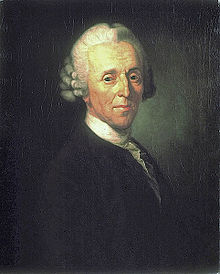Christian Furchtegott Gellert
| Christian Fürchtegott Gellert | |
|---|---|

Christian Fürchtegott Gellert. Painting by Anton Graff
|
|
| Born |
4 July 1715 Hainichen, Saxony |
| Died | 13 December 1769 (aged 54) Leipzig, Saxony |
Christian Fürchtegott Gellert (4 July 1715 – 13 December 1769) was a German poet, one of the forerunners of the golden age of German literature that was ushered in by Lessing.
He was born at Hainichen in the Saxon Erzgebirge foreland. After attending the famous school of St. Afra in Meissen, he entered Leipzig University in 1734 as a student of theology, and on completing his studies in 1739 was a private tutor for two years. Returning to Leipzig in 1741, he contributed to the Bremer Beiträge, a periodical founded by former disciples of Johann Christoph Gottsched, who had revolted from the pedantry of his school. Owing to shyness and weak health Gellert gave up all idea of entering the ministry, and, establishing himself in 1745 as Privatdozent in philosophy at the university of Leipzig, lectured on poetry, rhetoric and literary style with much success. In 1751 he was appointed extraordinary professor of philosophy, a post which he held until his death at Leipzig in 1769. A hundred years later Berthold Auerbach's Christian Gellert's Last Christmas was translated into English.
The esteem and veneration in which Gellert was held by the students, and indeed by persons in all classes of society, was unbounded, and yet due perhaps less to his unrivalled popularity as a lecturer and writer than to his personal character. He was the noblest and most amiable of men, generous, tender-hearted and of unaffected piety and humility. He wrote in order to raise the religious and moral character of the people, and to this end employed language which, though at times prolix, was always correct and clear. He thus became one of the most popular German authors, and some of his poems enjoyed a celebrity out of proportion to their literary value. This is more particularly true of his Fabeln und Erzählungen (1746-1748) and of his Geistliche Oden und Lieder (1758).
...
Wikipedia
